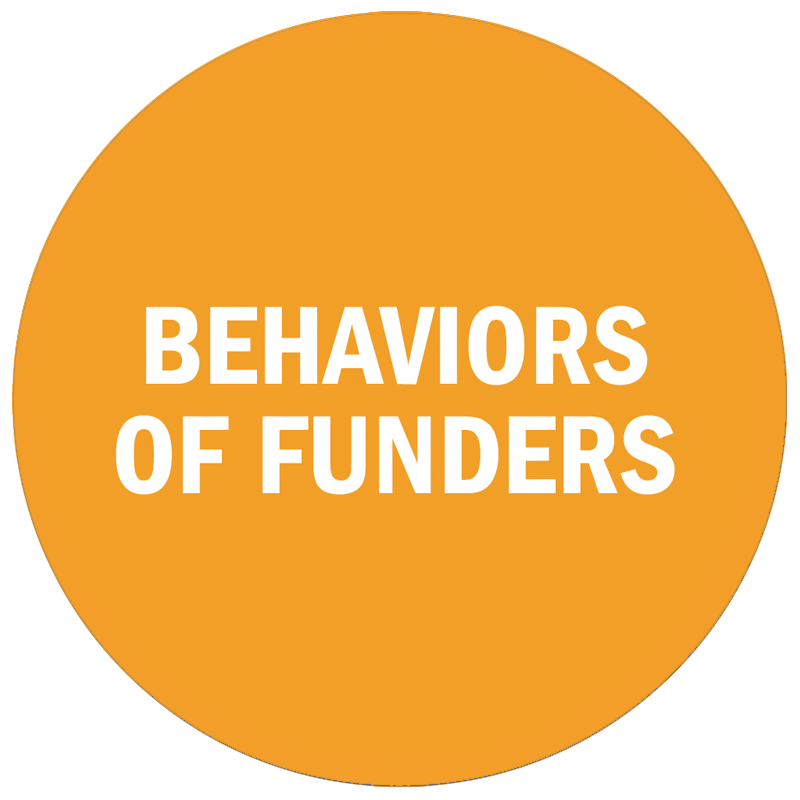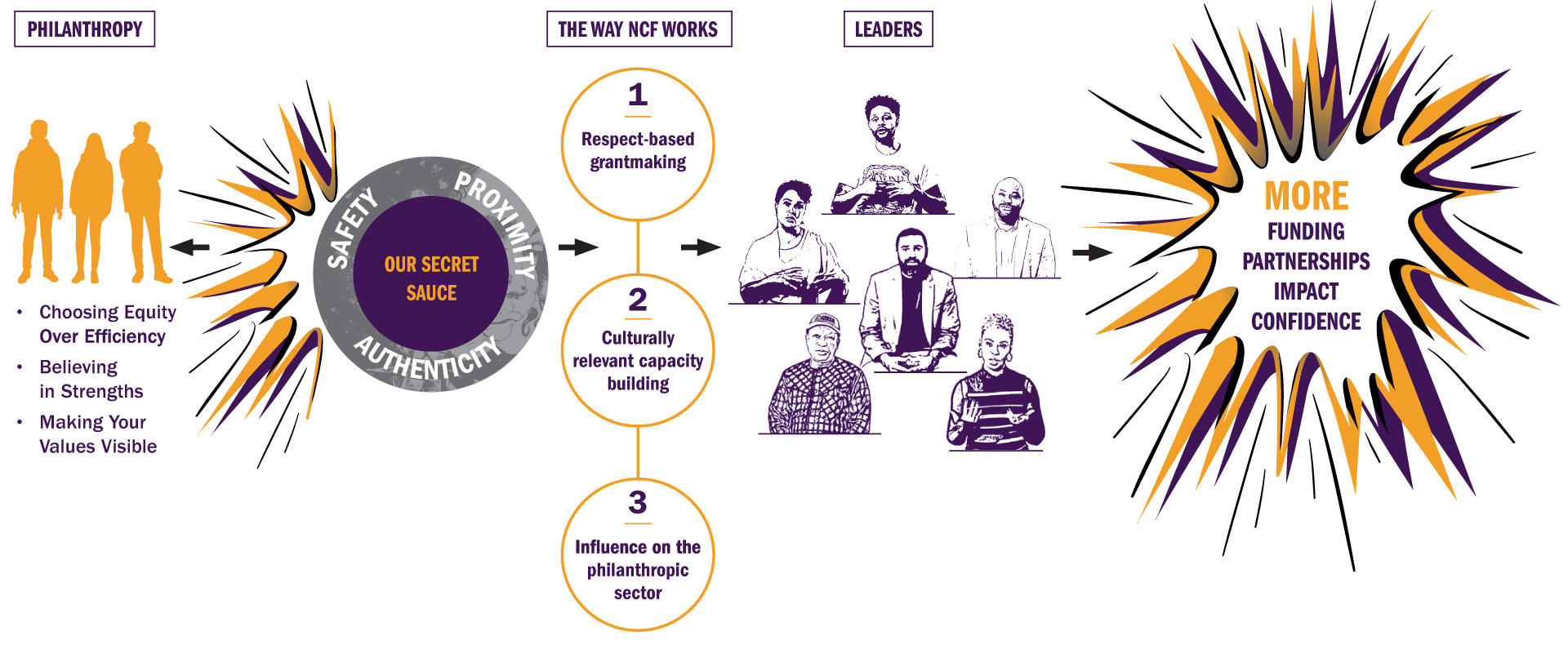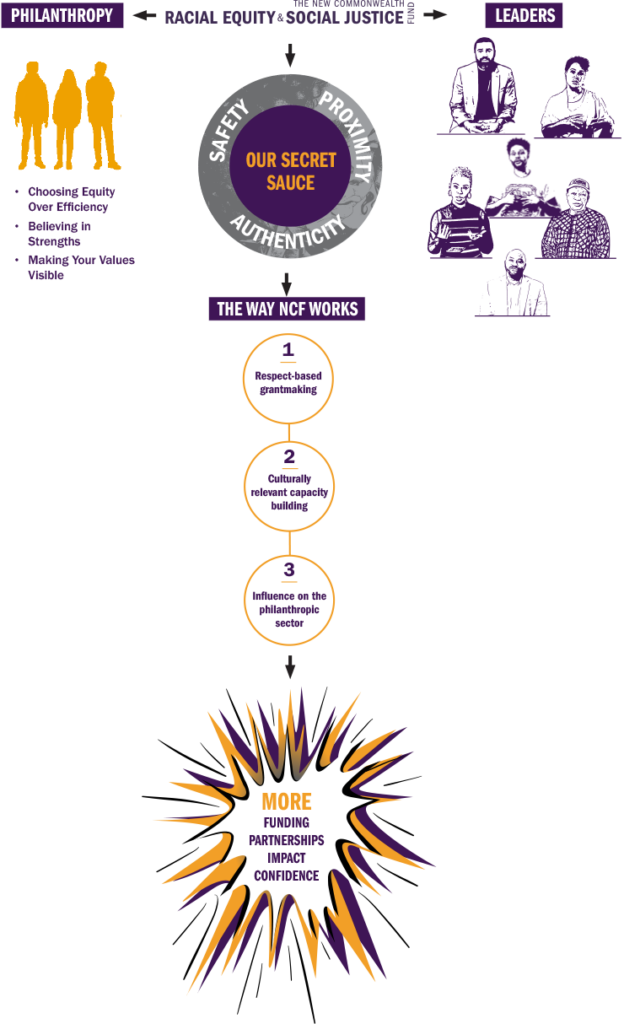Do Not Rush To Trust. Begin With Respect.
NCF has arrived at a place of deep familiarity with the leaders we support in a short period of time, and this is because we made an early investment not only in the organizations, but more importantly, in the people. Leaders tell us they feel “seen.” This proximity has proven to be invaluable.
But we still have to avoid rushing to the nomenclature of “trust” to define our grantmaking. For those in philanthropic leadership positions, to do so would be at best naïve, and at worst a perpetuation of the harm done by the traditional way that the sector has operated. We as the “funder” continue to hold the money and they as the “grantee” continue to compete for the dollars.
We began with a conversation, a curiosity, a shared connection, and recorded our learnings until they developed into what we present as a framework based on “respect.” Our framework has further tested what the application of “respect” allows to flourish across all areas of our grantmaking, including the identification of metrics, measurement, capacity building, technical assistance, application and reporting structures, site visits and partnership collaboration.
NCF believes that by starting with knowing who the people are at the core of each organization and allowing them to know us opens the door for a relationship based in respect and one that has promise to grow toward trust.
This model for philanthropy focuses on achieving six outcomes that impact leaders, funders and the communities that surround us all.
- FUNDING EQUITY FOR LEADERs
- AUDACIOUS CONFIDENCE
- CO-AUTHORSHIP OF STRATEGY
- INVESTMENT IN PEOPLE
- CULTURE & proximity AS GENIUS
- PROXIMITY – SAFETY – AUTHENTICITY
Respect-based philanthropy framework

LEADERS HAVE EQUITY IN FUNDING
To serve the most pressing needs of the community at a scale that matches the complexity of the challenge.
LEADERS HAVE CONFIDENCE
To execute their vision, communicate their needs, and advocate for themselves.
LEADERS CO-OWN THE STRATEGY
To collaborate with funders, stay responsive to the needs of the community, and innovate.

CHOOSING EQUITY OVER EFFICIENCY
(WHAT WE OFTEN SEE)
Funders should invest in people, not just “solutions”: capacity building, multi-year gifts, unrestricted support.
BELIEVING IN STRENGTHS
(WHAT WE WISH WE SAW MORE)
Funders should see the cultural assets of leaders as strengths that can deliver on outcomes.
MAKING YOUR VALUES VISIBLE
(WHAT WE RARELY SEE)
Funders should be about it, not just talk about it. Investing in capacity is an investment in accountability. If you believe in the strength of a leader, then be prepared to support the development their organization needs that will allow them to manage larger investments.

PROXIMITY
Those closest to the challenge are closest to the solution. There’s no substitute for firsthand experience. Treat nonprofit leaders as experts.
SAFETY
Reset the power dynamic in the relationship. In cases of past harm, reconciliation and healing need to come first.
AUTHENTICITY
Consider the cultural assets of leaders as strengths that are critical ingredients to the partnerships. Do not ask leaders to dilute their genius or stifle their experience as a people.
Theory of Change
NCF’s secret sauce has a multiplier effect in two directions. We push the philanthropic sector to reframe itself, putting the values of equity and respect at its center. We wrap our grantmaking with culturally supportive infrastructure, ensuring the leaders we are funding are able to triple their impact in the field.



